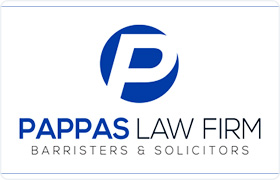Toronto Foreclosure Lawyer, Ontario, page 5
Sponsored Law Firm
-
 x
x

Click For More Info:
-
Pappas Law Firm
3100 Steeles Ave W Suite 602 Vaughan, ON L4K 3R1» view mapEstate & Real Estate Pay No Legal Fees Until You Get Paid
Pappas Law Firm specializes in civil litigation and concentrates on serious personal injury claims.
800-953-0441
Not enough matches for Toronto Foreclosure lawyer.
Below are all Toronto lawyers.
Marie Lampropoulos
Accident & Injury, Insurance, Personal Injury, Disability
Status: In Good Standing Licensed: 12 Years
Matthew Rowan Norwood
Patent, Litigation, Science, Technology & Internet
Status: In Good Standing Licensed: 18 Years
Sean James Skiffington
Joint Ventures, Merger & Acquisition, Corporate
Status: In Good Standing Licensed: 21 Years
Stephanie Anick Lafrance
Class Action, Antitrust, Securities Fraud
Status: In Good Standing Licensed: 15 Years
David Huard
Litigation, Transportation & Shipping, Bankruptcy Litigation, Business
Status: In Good Standing Licensed: 15 Years
David Zuber
Civil Rights, Insurance, Medical Malpractice, Car Accident
Status: In Good Standing Licensed: 14 Years
 George Pappas Vaughan, ON
George Pappas Vaughan, ON AboutPappas Law Firm
AboutPappas Law Firm Practice AreasExpertise
Practice AreasExpertise